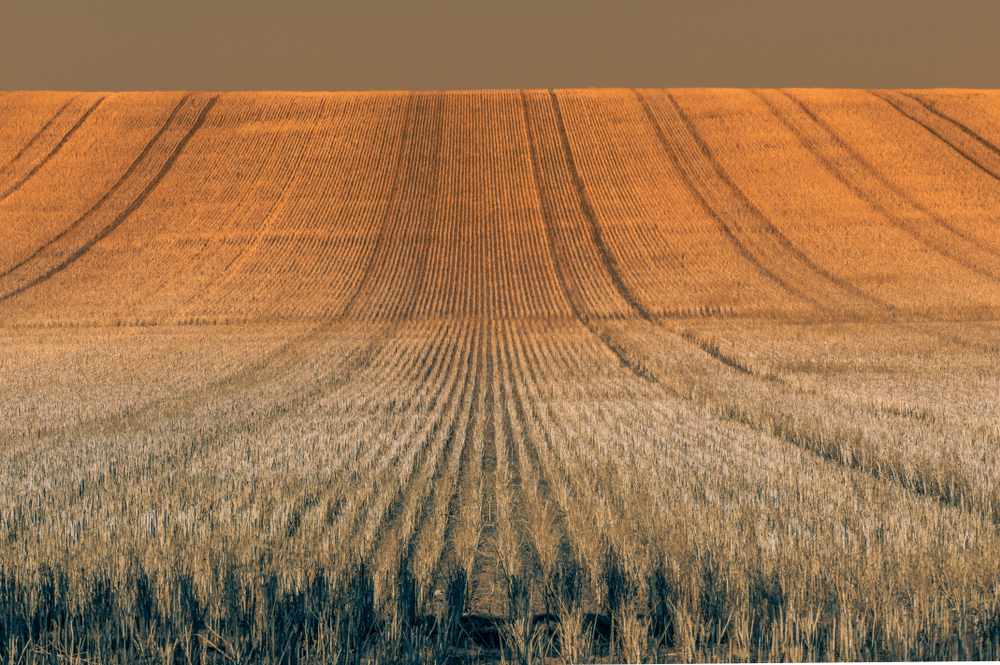Farmers are filing for bankruptcy at a rate 24 percent higher than last year.

It’s no secret that the past few years have been disastrous for the American farming industry.
Freak weather, oversupply, trade wars, pesticide damage—it’s been a perfect storm, on top of all the regular storms, for American farmers. The American Farm Bureau Federation, commonly just called the Farm Bureau, released a study examining the end result of all of that damage: bankruptcies.
The Farm Bureau, a lobbying group that typically leans to the corporate side of farming, analyzed statistical data from the US Courts concerning bankruptcy filings. For the year leading up to September 2019, American farm bankruptcies were up by a whopping 24 percent compared to the year before. During this mostly-2019 period, there were 580 Chapter 12 bankruptcy filings.
Chapter 12 is a form of bankruptcy filing that was first passed in 1986, specifically for farms or fishing operations. The restrictions are brutal, requiring millions of dollars of debt, so it’s even more concerning that so many farmers qualify.
The Farm Bureau’s data analysis drills down further, finding that the highest number of bankruptcy filings were in Wisconsin, followed by Georgia, Nebraska, and Kansas. Wisconsin’s 48 bankruptcies in 2019 are likely high because of the dairy industry; an estimated 40 percent of dairy farms in the state nicknamed “America’s Dairyland” have gone out of business in the past decade, according to NPR.
The number of farm bankruptcies over the past few years is still not quite at the heights of the 1980s farm crisis, where a combination of a Soviet embargo, record supply, and an extreme drop in the value of farmland led directly to the creation of Chapter 12 bankruptcy in the first place. But the pattern is alarming, with the trade war continuing and a sudden brutally cold stretch of weather affecting harvests. The USDA is attempting to address these problems with bailout money, but uneven distribution and timing issues may mean that funding is too little and too late to save many farm businesses.
Good job voting for Trump! Maybe it’s time for you to start voting in your best interests.
MAGA? Bwahahahahahahahahahha!
If you actually read the article you would see that this has mostly to do with the decline of Dairy, something that has been slowly going on for over a decade (and that’s a good thing since dairy destroys health and causes heart disease, the number one killer worldwide and in America). The decline of dairy has nothing to do with Trump or China. Most Americans including farmers agree that Trump is doing the right thing standing up to the human rights abusing, property stealing , communist dictatorship.
Maybe it’s time for those great Americans, the billionaires to spread a little of the wealth they will never spend to a place that needs help. Sorry Bill Gates, you won’t get your name on a plaque for this one.
He forgot to mention interest rates the private foreign owned federal reserve bank set interest rates at 19 % figure that on a 200,000 loan no new farmers dared to enter just killed off the next generation to come into the breach. Soon there will be smaller number farming huge acreage then if one or two of those “entities” (no longer family farm, but corporate) fail… possible food shortage?
Drain the “Washington SWAMP” and make TRUMP rich on Farmers back… MAGA??
We convert crops to forest in order to create carbon credits. We grow the saplings, plant them in partnership with landowners, verify the credits the growing trees create, and sell the credits to large corporations, splitting revenue with partner landowners. This not only helps reduce carbon emissions through carbon sequestration, it returns a healthy revenue for our partners. We sell the credits regularly to Shell Oil, United Airlines, Duke Energy, Norfolk Southern Railway, and other corporations with a large carbon footprint they would like to offset. They will buy as many credits as we can create. After 15 years, we… Read more »
Let Bloomberg do the farming… Then..there will be no obesity problem.
The principals of farm BUREAU needs to be understood and bankruptcy clause needs to be STUDIED for Indian farms